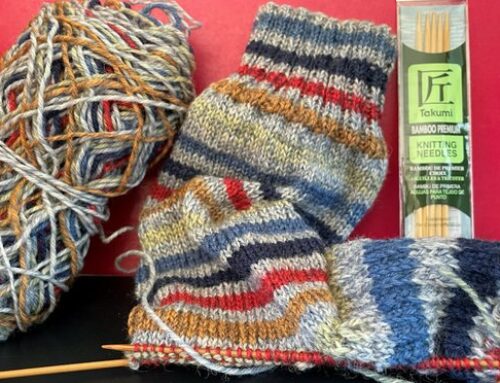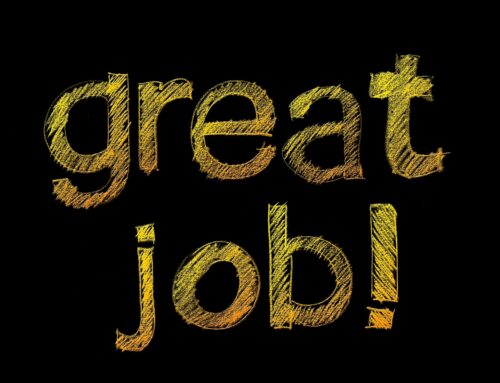During this country’s infancy, lawyers were educated and trained for the profession not by attending law school, but through an apprenticeship with a practicing attorney. At the start of the 19th century, a college degree was not required for bar admission and 68 percent of Philadelphia lawyers were college graduates at that time, according to A. Christopher Bryant in an article for the Nevada Law Journal titled, “Reading the Law in the Office of Calvin Fletcher: The Apprenticeship System and the Practice of Law in Frontier Indiana,” which explores the apprenticeship system. By the end of that century, university law schools had replaced apprenticeships as the dominant method of educating and training lawyers. However, Bryant suggests that we lost something along the way in terms of practical guidance in a work setting. He posits that graduating law school alone does not prepare most lawyers for immediate entry into a solo practice and that those in supervisory roles are key to ensuring experiential learning.
Enter the mentor. A mentor is generally described as an individual who gives a less-experienced person help and advice over a period of time, especially at work or school. “A 2012 Dimensional Research survey revealed that mentorship was the number-one request by millennials worldwide, with 42 percent requesting help finding a mentor,” according to Lee Caraher, writing for FastCompany.com.
At every phase of my life, mentors have been catalysts for my development and helped me achieve things that, without them, seemed unreachable. Without the steady mentorship of Terry Mutchler—now with Pepper Hamilton—I would not have seized the opportunity to argue before the Pennsylvania Supreme Court. “You can always do more than you think you can,” she said. Fear can paralyze, and a mentor can help mobilize by instilling confidence and giving practice tips.
I recently had the pleasure of meeting Lindsay McClain when she was the featured speaker at a networking event hosted by Conrad O’Brien’s women’s initiative group. McClain is known for advancing to chef de cuisine at Jamonera, a restaurant in Philadelphia, when she was 24 and for having won Food Network’s “Chopped” when she was only 26. How did this young chef wind up speaking to a large group of high-powered female attorneys and executives? As she spoke, it was clear that she credits mentors for her rapid ascent. McClain is a graduate of the Indiana University of Pennsylvania Academy of Culinary Arts and earned her hospitality management degree in 2009 at 22 years old. A professor took her under his wing and helped her get an externship at Emeril’s New Orleans Fish House in Las Vegas. McClain said he was hard on her in seafood class just so she would do well at Emeril’s, a seafood restaurant. He always checked on her, asked how classes were going, and encouraged her. “He built me up,” she said.
McClain’s current boss, Marcie Turney, also knows about being a good mentor. When she was invited to be on the Food Network’s competition show “Chopped,” Turney passed the offer along to McClain. “She’s always promoting us and looking for opportunities for us,” McClain said. Seasoned chefs regularly fail on “Chopped,” where the contestants are eliminated in rounds, leaving two to fight it out. Like court, only one person can win. McClain had never competed in a public forum but, “I am not one to turn down any opportunity so I usually take on anything they throw my way. That has helped me to advance as quickly.” So did hard work. Before appearing on “Chopped,” the cooks at Jamonera put together baskets of weird ingredients, timed McClain as she prepared a dish, and critiqued her, several times a week. Just as an attorney can use a moot argument to prepare for court or a focus group to test a case, McClain honed her skills by enlisting others.
When asked how she felt when asked to speak at a gathering of lawyers, McClain described it as daunting. “They are very educated, and that’s intimidating. I told myself these are women working in a man’s world just like me, and that was the approach.” Her best friend, a lawyer, encouraged her to do it. McClain is a great example of how hard work, combined with knowing how to tap resources and engage in positive self-talk results in exponential growth and early success. She said, “Having mentors is what helped give me confidence, open doors in different cities, and having them now that I’m successful is still exciting.” Her mentors were proud of her appearing on “Chopped” and that was worth more to McClain than the $10,000 prize she won.
Her advice to young professionals looking to be mentored: “Ask questions, be excited about what you’re doing. You’re going to do it for the rest of your life, so if you’re not passionate, people will see that. If you are passionate, they will want to work with you. Make efforts to do better, ask if you can help.” She believes it’s important to put the time in and stay late when needed. She views it as a vote of confidence to be asked to stay late because it means someone believes she will do the job well.
Do not hesitate to seek mentors, because they want to work with you, too. Gaetano Piccirilli, a partner at Klehr Harrison Harvey Branzburg, wrote this LinkedIn post Oct. 30: “They say no good deed goes unpunished, but mentoring and helping young lawyers is worth its weight in gold. This isn’t an easy profession, and I was grateful to have good people in my corner all along the way.”
I interviewed Piccirilli for more insight on his mentoring philosophy. He said giving an opportunity to attend an argument is a helpful first step and then letting them handle the argument would follow. “When I see the opportunity to pass down work, I let them run with it in a controlled environment,” he said, adding that “people appreciate pushing the comfort zone of what they know how to do.” He recommends putting young lawyers in situations where they cannot fail, such as settlement conferences, discovery, small-claim cases and arbitrations where an appeal is de novo. It is also important to have that young lawyer’s back if something goes wrong. “You’re responsible for sending them,” he emphasized. Cultivating young lawyers “creates a deeper bench. If something comes up, you have someone you can tap,” he said. “When you’re a good mentor, the young lawyer will take the extra step for you,” he said, and that “loyalty in a law firm is always a good thing.”
Along the way, Piccirilli helps his mentees manage fear and anxiety as well as social awkwardness by taking them to political events, library readings and other venues to give them exposure. He commented that no one teaches you how to get clients in law school and he helps with that too, advising young lawyers on how to approach networking. “We’re in the relationship business,” he tells them. “Find something in common and leave them alone. Follow up, go to lunch and develop the relationship.” It’s not about the hard sell.
About being a mentor, Piccirilli said, “It feels good. It’s fun if you do it the right way. It’s a stressful job and mentoring is a way to relieve that stress. You get to do something else and forget about your inbox for a while and focus on something new.” To find a good mentor, Piccirilli suggested you look at who you are doing work for and, from that group, who you get along with the best. Request specific help when you need it. If you are going to an event, ask for ideas on the approach. “It’s never bad to ask for a mentor,” Piccirilli said. If there are no mentors on the horizon, seek someone outside your organization. Join a bar association practice group, committee, Inn of Court, or any one of the myriad groups organized around areas of interest and start getting to know people. We are all in the relationship business and good mentors can be instrumental in making introductions and providing guidance for developing them.
Reprinted with permission from the December 2, 2015 edition of “The Legal Intelligencer” © 2015 ALM Media Properties, LLC. All rights reserved. Further duplication without permission is prohibited. For information, contact 877-257-3382, reprints@alm.com or visit www.almreprints.com







